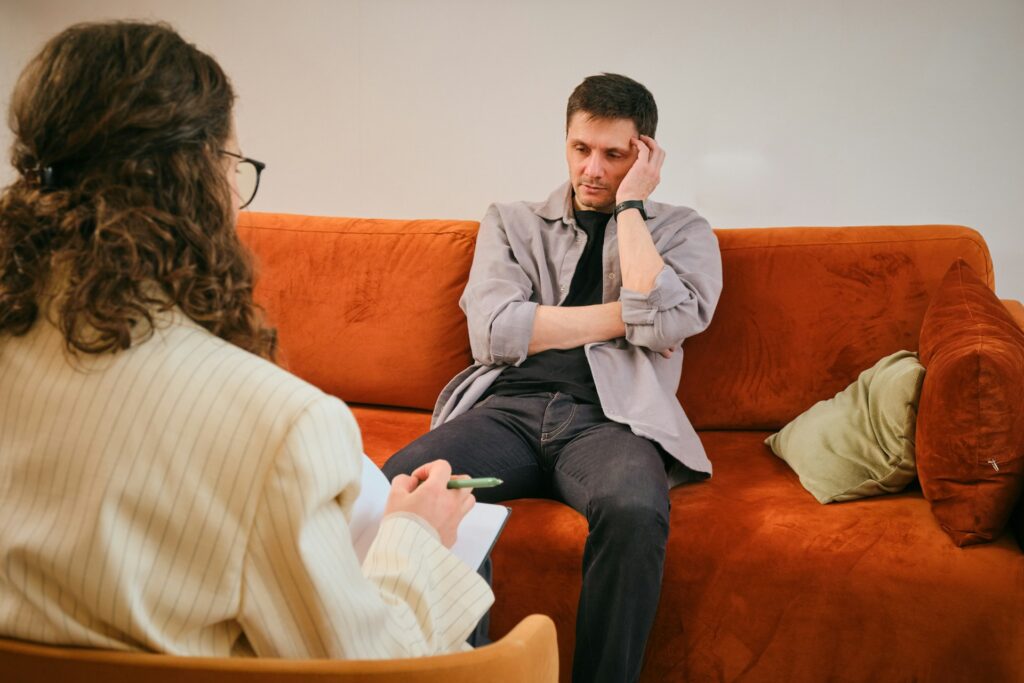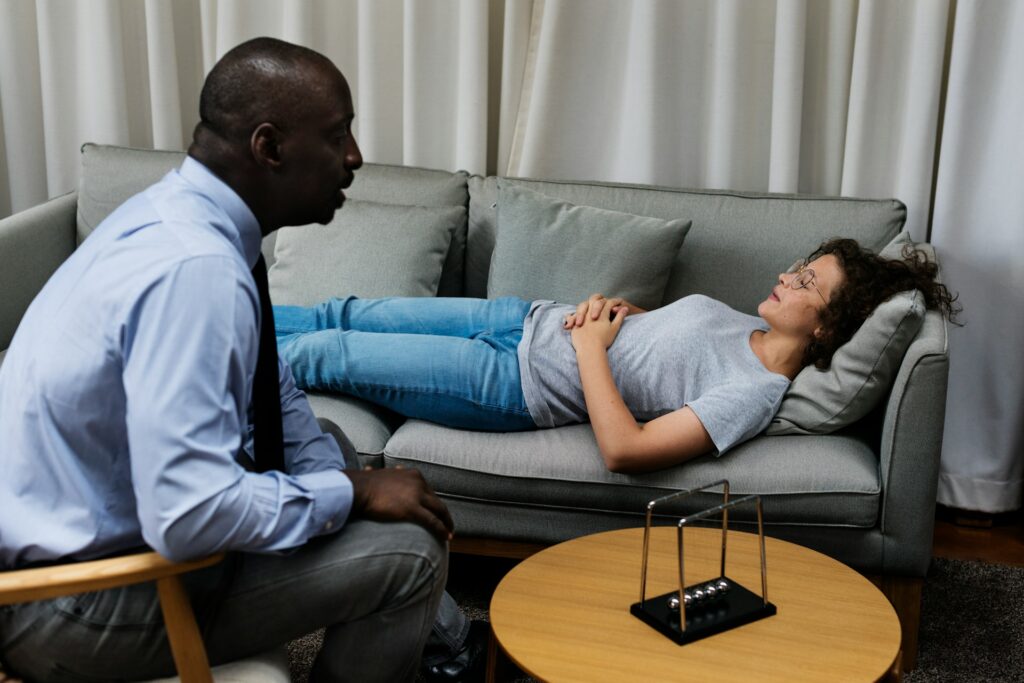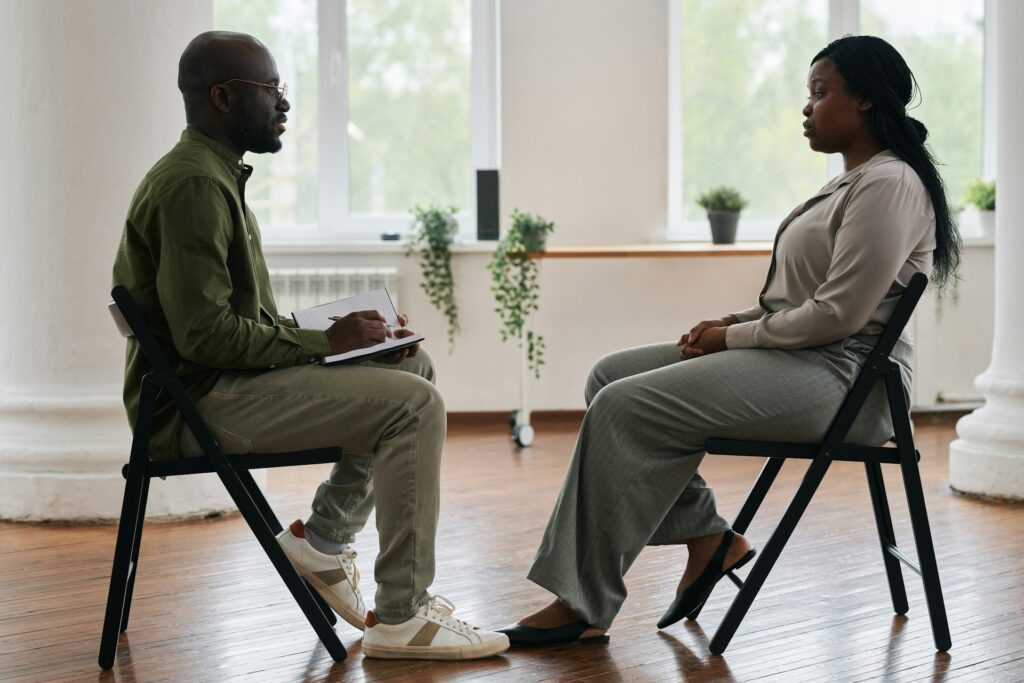Thinking about going to therapy can feel like a big step that comes with plenty of questions and maybe even a bit of hesitation.

It’s normal to be sceptical, especially if you’ve never experienced it before or if the idea of talking about your feelings with a stranger seems daunting. Maybe you’re wondering if therapy is really necessary, or if it’s just something that’s overhyped. If you’ve found yourself wondering whether it’s worth it, know that you’re not alone. A lot of people feel the same way before they take the plunge. But if you’re still unsure, let’s break down how therapy can actually help you. It’s not just about “talking about your problems”—it’s about gaining a new perspective, learning about yourself, and developing tools to handle life’s ups and downs in a healthier way.
Therapy offers a safe space to be heard.

One of the biggest benefits of therapy is that it provides a space where you can speak your mind without fear of judgement. Life can be overwhelming, and sometimes it feels like there’s nowhere to turn. Whether you’re dealing with stress, anxiety, or relationship struggles, having someone who is truly there to listen can make all the difference. Unlike chatting with friends or family, therapists are trained to listen in a way that’s completely focused on you—no distractions, no trying to fix things, just an open, non-judgemental ear. That alone can be incredibly therapeutic, giving you the chance to express yourself honestly and fully without worrying about what anyone else might think.
It helps you gain clarity on your thoughts and emotions.

Ever feel like you’ve got so much going on in your head that it’s hard to make sense of it all? That’s where therapy comes in. Speaking to someone can help you untangle those thoughts and put them into perspective. Often, when we keep our feelings to ourselves or don’t have the tools to process them, they can feel jumbled and overwhelming. A therapist can help you break down these emotions and thoughts, allowing you to see things more clearly. They won’t necessarily give you the answers, but they’ll guide you to a place where you can discover your own understanding and come up with solutions that feel right for you.
It helps you manage and understand your emotions.

Emotions can be tricky to deal with, especially if they’re overwhelming or difficult to put into words. Therapy provides a safe space to explore those emotions and understand where they come from. You might feel angry, anxious, sad, or even numb, but therapy helps you get to the root of why you’re feeling that way and what it means. By understanding your emotional responses, you’ll be able to manage them better and prevent them from taking over. You don’t have to “fix” everything right away; sometimes just having the ability to understand why you’re feeling what you’re feeling can bring a sense of relief and control.
It teaches you healthy coping mechanisms.

Everyone has ways of coping with stress, but not all coping mechanisms are healthy. Whether it’s avoiding your feelings, overworking, or using substances to numb the pain, we all have our own go-to methods of dealing with life’s challenges. But some of these coping mechanisms can make things worse in the long run. Therapy helps you identify these patterns and replace them with healthier alternatives. You’ll learn effective tools to manage stress, anxiety, and difficult emotions. Whether it’s mindfulness, breathing exercises, or cognitive behavioural techniques, therapy can provide you with practical strategies that work for you.
It gives you the chance to break old patterns.

Sometimes, the biggest obstacle to moving forward in life is the patterns we get stuck in. Whether it’s unhealthy behaviours, negative self-talk, or toxic relationship dynamics, these patterns can hold us back without us even realising it. Therapy can help you identify these patterns and challenge them, giving you the opportunity to break free and create new, healthier habits. It’s not always easy, and it takes time, but with a therapist’s guidance, you’ll be able to recognise what’s no longer serving you and start to change those behaviours for good.
Therapy offers a fresh perspective on your problems.

It’s easy to get stuck in your own head and feel like there’s no way out of a situation. Sometimes, all you need is an outside perspective to help you see things in a new light. That’s where therapy comes in. Therapists are trained to look at things objectively and offer different ways of thinking about a problem. Maybe you’ve been feeling stuck in a particular situation, like a difficult relationship or a career issue, and you’re not sure how to move forward. A therapist can help you see your options, explore what’s really important to you, and find new ways of approaching the issue that you might not have thought of on your own.
It helps you improve your relationships.

If you’re finding it hard to connect with the people around you, therapy can help with that too. It’s easy for our thoughts, emotions, and past experiences to get in the way of our relationships. Therapy can help you understand how your past might be affecting your present interactions with other people, and it can teach you communication skills that will strengthen your relationships. Whether it’s with a partner, a friend, or a family member, therapy can help you develop healthier ways of connecting with people and create more fulfilling relationships.
It helps you feel less isolated.

When you’re struggling with your mental health, it can feel incredibly isolating. Sometimes, it’s hard to talk to those close to you because you don’t want to burden them, or you feel like they wouldn’t understand. Therapy offers a safe space where you’re not alone in what you’re experiencing. You’ll be working with someone who is trained to help and understands what you’re going through. Even if you can’t talk to your loved ones about everything, having someone in your corner who can guide you through your struggles can help you feel supported and less isolated.
It provides personal growth.

Therapy isn’t just for when things go wrong—it’s also a great way to invest in yourself. Even when you’re feeling okay, therapy can help you grow as a person. By exploring your values, goals, and dreams, you can use therapy as a tool to help you become the best version of yourself. It’s about self-awareness, self-acceptance, and building a future that feels fulfilling and aligned with who you truly are. Personal growth doesn’t just happen overnight, but therapy can help you get there with more clarity and intention.
It can help you find meaning in your life.

At some point, most of us wonder about the bigger picture. What’s the meaning of all of this? Why am I here? Therapy can help you explore these existential questions, allowing you to find purpose and meaning in your life. Whether it’s about your career, your relationships, or your personal values, therapy can help you connect the dots and gain a deeper understanding of what truly matters to you.
It’s not just about solving problems, it’s about feeling heard.

Finally, therapy isn’t just about solving problems—it’s about feeling heard. Sometimes, we don’t need someone to fix our problems; we just need someone to listen. The act of being truly heard can be incredibly healing, and that’s what therapy offers. It gives you the space to express yourself without fear of judgement, and it helps you process your thoughts and emotions in a way that’s compassionate and supportive.


